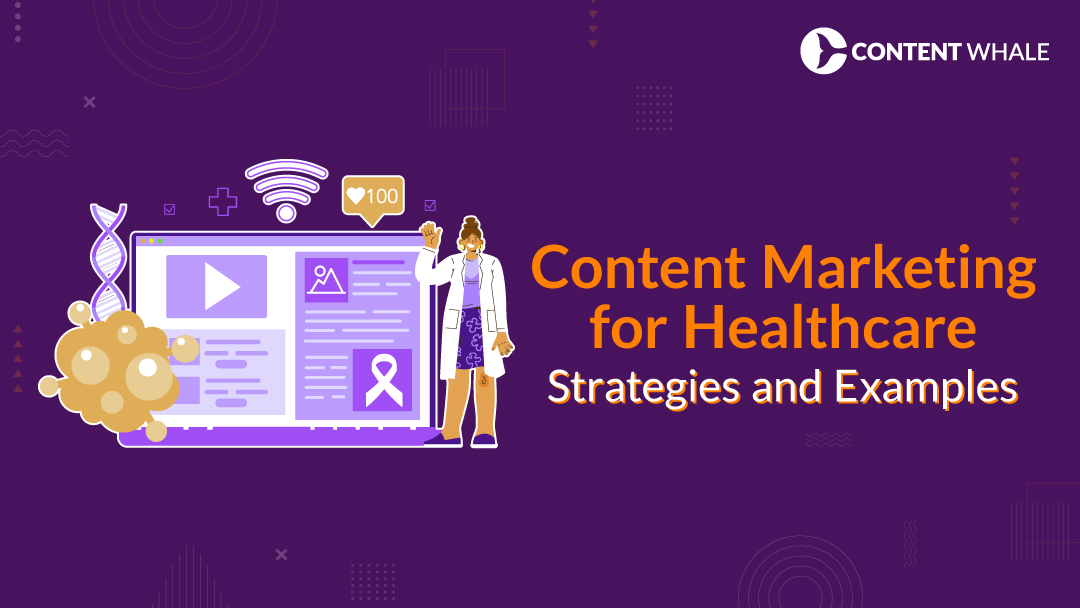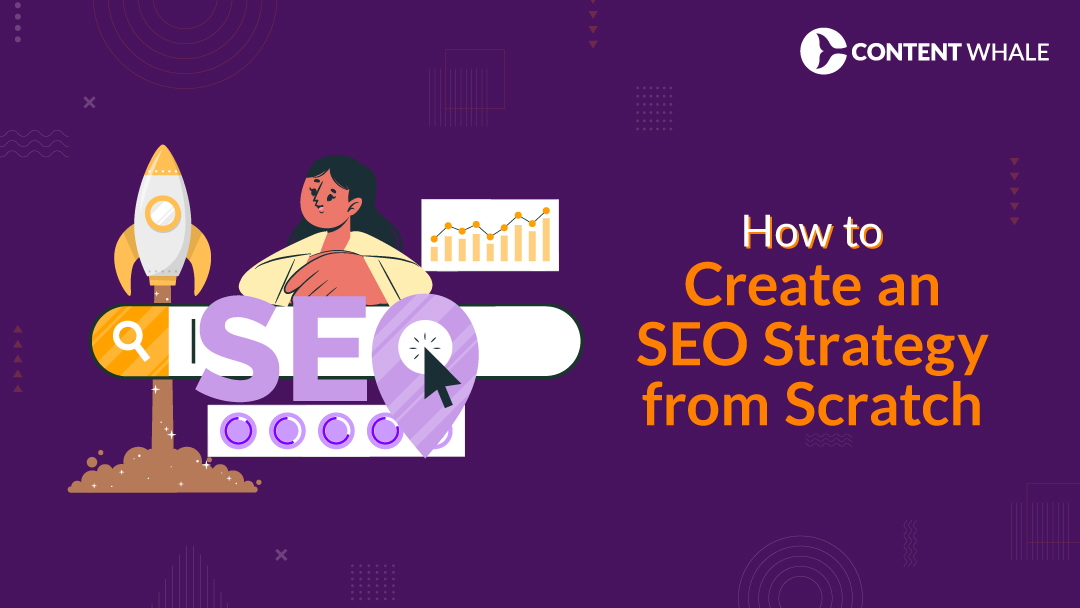Understanding the significance of content marketing for healthcare is essential. This guide explores effective content marketing and healthcare strategies to create engaging healthcare content. Learn from healthcare content marketing examples and implement best practices to optimize your efforts. This comprehensive approach will help healthcare providers educate patients, build trust, and improve health outcomes.
Content marketing is a strategic approach focused on creating and distributing valuable, relevant, and consistent content to attract and engage a target audience. In the healthcare sector, content marketing plays a crucial role in educating patients, building trust, and improving health outcomes. By providing reliable and insightful information, healthcare providers can enhance patient engagement and foster stronger patient-provider relationships.
Effective content marketing for healthcare involves understanding patient needs and delivering content that addresses their concerns. This guide will cover the significance of content marketing and healthcare, various types of healthcare content, strategies for creating engaging content, and examples of successful campaigns. We will also discuss best practices for optimizing your healthcare content strategy to ensure compliance and maximize impact. Through these insights, healthcare organizations can develop a comprehensive approach to content marketing, ultimately benefiting both patients and providers.
The Importance of Content Marketing in Healthcare
1. Building Trust and Credibility
Content marketing in healthcare is essential for establishing trust and credibility with patients. Providing accurate, valuable information helps healthcare providers become reliable sources of knowledge. This trust is vital in healthcare, where decisions have significant impacts on patient lives. Sharing detailed articles, videos, and patient testimonials enhances this trust, making patients more likely to rely on the provider for their healthcare needs.
2. Educating Patients
Educating patients through high-quality content is a cornerstone of effective healthcare content marketing. Informative content on health conditions, treatments, and wellness tips empowers patients to understand their health better and take proactive measures. This approach not only improves patient outcomes but also enhances engagement by making patients feel more involved in their care journey.
3. Enhancing Patient Engagement and Loyalty
Engaging content, such as personalized health tips, interactive tools, and patient success stories, fosters a deeper connection between patients and healthcare providers. This connection is crucial for increasing patient retention and generating positive word-of-mouth referrals. A well-executed healthcare content strategy can significantly enhance patient loyalty.
4. Improving Patient Outcomes
Access to comprehensive and understandable health information allows patients to make informed decisions, follow treatment plans more effectively, and adopt healthier lifestyle choices. This proactive approach can lead to better overall health and reduced healthcare costs over time. Content marketing plays a crucial role in facilitating these informed decisions, ultimately improving patient outcomes.
5. Differentiating in a Competitive Market
Content marketing helps healthcare providers stand out in a competitive market. By consistently producing high-quality, patient-focused content, providers can attract more patients and boost brand visibility. This strategy reinforces the provider’s commitment to patient care and education, setting them apart from competitors.
In summary, content marketing for healthcare is vital for building trust, educating patients, enhancing engagement, improving outcomes, and differentiating providers in a competitive market. Implementing a robust healthcare content strategy enables providers to achieve these goals effectively.
Types of Healthcare Content

1. Blog Posts and Articles
Blog posts and articles are fundamental components of content marketing for healthcare. They provide in-depth information on health tips, medical conditions, treatments, and wellness advice. This type of content helps in educating patients and building trust with the audience.
2. Patient Success Stories and Testimonials
Sharing patient success stories and testimonials humanizes your healthcare services and builds emotional connections. These stories highlight real-life experiences and outcomes, which can reassure prospective patients about the quality of care provided.
3. Videos and Webinars
Videos and webinars are highly engaging forms of healthcare content. They can feature healthcare professionals discussing various health topics, offering expert advice, and providing visual explanations of medical procedures. This format is particularly effective for explaining complex medical information in an easily digestible manner.
4. Infographics and Data Visualizations
Infographics and data visualizations present health trends and statistics in a visually appealing way. These can simplify complex data, making it more accessible and engaging for the audience. Infographics are especially useful for sharing quick health tips and important statistics.
5. Ebooks and Whitepapers
Ebooks and whitepapers offer detailed insights into specialized health topics. These long-form contents are valuable resources for patients seeking comprehensive information about specific conditions or treatments. They help establish the healthcare provider as a thought leader in the industry.
By utilizing these various types of content, healthcare providers can implement an effective healthcare content strategy that educates, engages, and builds trust with their audience.
Strategies for Creating Engaging Healthcare Content

1. Focus on Storytelling
Storytelling is a powerful tool in content marketing for healthcare. By sharing patient success stories, personal experiences, and staff profiles, you create an emotional connection with your audience. This approach humanizes your content and makes it more relatable, which is crucial in building trust and engagement.
2. Use Visuals
Incorporating visuals such as images, infographics, and videos can significantly enhance the impact of your healthcare content. Videos, in particular, are effective for demonstrating medical procedures, explaining complex concepts, and providing patient education. For example, a laser eye surgery center might use videos to show the entire process from patient preparation to post-operative care, which helps in alleviating patient anxieties and building trust.
3. Patient-Centric Language and Empathy
Crafting content with patient-centric language and empathy is essential. Use simple, clear language that is easy to understand, avoiding medical jargon whenever possible. This approach ensures that your content is accessible and resonates with a broader audience. Empathy in your content helps to build a connection and shows that you understand and care about the patient’s concerns.
4. Ensure Accuracy and Reliability
Healthcare content must be accurate, up-to-date, and backed by reliable sources. Misinformation can damage your credibility and trust with patients. Always ensure your content is reviewed by medical professionals and supported by current medical research. This not only establishes your authority but also reassures your audience that the information they are receiving is trustworthy.
5. Optimize for SEO
SEO is critical in making your healthcare content discoverable. Conduct thorough keyword research to identify relevant terms that your target audience is searching for. Incorporate these keywords naturally into your titles, headings, and body text. Additionally, optimize your meta descriptions and use alt text for images. This strategy will improve your content’s visibility on search engines, driving more organic traffic to your site.
6. Engage with Interactive Content
Interactive content such as quizzes, surveys, and interactive infographics can significantly boost engagement. These tools make your content more engaging and provide personalized experiences for your audience. For example, a quiz about symptoms can guide users to relevant healthcare information based on their responses, making the content more relevant and useful to them.
Implementing these strategies can enhance your healthcare content strategy, ensuring that your content is engaging, informative, and effective in reaching and resonating with your audience.
Healthcare Content Marketing Examples

1. UnitedHealthcare’s “We Dare You” Campaign
UnitedHealthcare’s “We Dare You” campaign is a prime example of engaging and interactive healthcare content marketing. This award-winning campaign encouraged participants to take small, healthy actions each month, such as drinking more water or getting enough sleep, and share their progress on social media. The campaign included quizzes and monthly “dares,” which motivated people to adopt healthier habits in a fun and interactive way. The campaign successfully fostered an online community and significantly boosted brand engagement and recognition.
2. New York Presbyterian Hospital’s Patient Stories
New York Presbyterian Hospital implemented a compelling campaign focused on patient stories. Through a series of print and video advertisements, the hospital showcased real-life experiences of patients and how the medical staff supported them through difficult times. These emotionally charged stories were also featured on a dedicated section of the hospital’s website, providing a comprehensive collection of patient experiences. This approach humanized the hospital, built trust, and demonstrated the hospital’s commitment to patient care.
3. Mayo Clinic’s Sharing Mayo Clinic Blog
Mayo Clinic’s Sharing Mayo Clinic blog exemplifies how healthcare providers can leverage content created by patients. Instead of solely relying on expert-written content, Mayo Clinic encouraged patients and their families to share their personal medical journeys. This strategy personalized the medical conditions discussed and provided valuable insights on coping and overcoming health challenges. The blog successfully united a diverse patient base into a global online community, reinforcing Mayo Clinic’s reputation as a trusted healthcare resource.
4. Tia’s Influencer Marketing Campaign
Tia, a women’s healthcare organization, launched an innovative influencer marketing campaign to promote its new Soho office. By collaborating with micro- and nano-influencers, many of whom were existing Tia members, the campaign generated authentic content that resonated with their target audience. The influencers shared their experiences on TikTok and Instagram, which helped increase brand awareness and showcased Tia’s unique approach to patient care. This strategy effectively leveraged social media to create buzz and connect with a wider audience.
5. Arkansas Children’s Hospital’s #100DeadliestDays Campaign
Arkansas Children’s Hospital created the #100DeadliestDays campaign to raise awareness about the increased risk of child fatalities during the period between Memorial Day and Labor Day. Using the shock factor of the campaign’s message, they engaged the community through social media, educating parents and caregivers on safety measures to protect children during this high-risk time. This campaign effectively used a memorable hashtag to drive home a critical public health message.
These examples highlight the effectiveness of diverse strategies in content marketing for healthcare. From engaging social media challenges to heartfelt patient stories and innovative influencer collaborations, these campaigns demonstrate the power of well-crafted healthcare content in building trust, engaging audiences, and promoting healthier lifestyles.
Best Practices for Healthcare Content Marketing

1. Regularly Update and Refresh Content
Keeping your healthcare content current is essential. Regular updates ensure that your audience receives the most accurate and relevant information. Outdated content can harm your credibility and search engine rankings. Use tools like Google Analytics to track which content needs updating based on engagement metrics and user feedback.
2. Use Analytics to Measure Performance
Analytics are crucial for understanding how your content performs and making data-driven decisions. Track key metrics such as website traffic, conversion rates, and social media engagement. Tools like Google Analytics and SEMrush can help you monitor these metrics and adjust your strategies accordingly.
3. Encourage Patient Feedback and Interaction
Engaging with your audience through comments, surveys, and feedback forms can provide valuable insights into their needs and preferences. This interaction not only helps improve your content but also fosters a sense of community and trust. Respond promptly to feedback, especially negative reviews, to show that you value patient input and are committed to improving their experience.
4. Ensure Compliance with Healthcare Regulations
Healthcare content must comply with regulations like HIPAA to protect patient privacy. Make sure your marketing practices do not expose any protected health information. Regular training for your marketing team on compliance and data protection is essential to avoid costly violations and maintain trust.
5. Collaborate with Healthcare Professionals
Working with healthcare professionals ensures that your content is accurate and authoritative. Physicians and specialists can provide expert insights and validate the information you share. This collaboration enhances the credibility of your content and helps in building trust with your audience.
6. Personalize Your Content
Personalization is key to engaging patients. Use patient data to tailor content to individual needs and preferences. Personalized emails, patient portals, and targeted content can significantly improve patient satisfaction and loyalty. AI and data analytics can help in creating personalized content that resonates with your audience.
7. Leverage Multiple Channels
Distribute your content across various platforms where your audience is active, such as social media, email newsletters, and your website. A multi-channel approach increases your reach and ensures that your content is accessible to a broader audience. This strategy also helps in engaging different segments of your audience effectively.
Implementing these best practices in content marketing for healthcare can enhance your engagement, build trust, and improve patient outcomes. By staying updated, measuring performance, and ensuring compliance, healthcare providers can create impactful and effective content strategies.
Conclusion

Content marketing for healthcare is essential for building trust, educating patients, and enhancing engagement. By implementing effective strategies, healthcare providers can create high-quality, accurate, and engaging healthcare content that resonates with their audience. This includes leveraging a variety of content types, optimizing for SEO, and using analytics to measure performance. Successful healthcare content marketing examples demonstrate the power of storytelling, patient testimonials, and interactive campaigns in building strong patient-provider relationships.
Healthcare organizations should continuously update and personalize their content, ensuring it remains relevant and compliant with industry regulations. Partnering with a healthcare content marketing agency can provide additional expertise and resources to optimize these efforts.
By adopting these best practices, healthcare providers can enhance patient outcomes, build loyalty, and establish themselves as trusted sources of information in an increasingly digital world. For professional assistance in creating impactful healthcare content, consider partnering with Content Whale, a leading content writing agency for healthcare content in delivering tailored content marketing solutions
FAQs
Why is content marketing important for healthcare?
Content marketing for healthcare is crucial because it helps build trust and credibility with patients by providing accurate and valuable information. It educates patients, improves engagement, and enhances patient loyalty. Effective content marketing can also lead to better patient outcomes by enabling informed decision-making.
What types of content are most effective in healthcare marketing?
Effective healthcare content includes blog posts, patient success stories, videos, webinars, infographics, and ebooks. These formats can educate patients, showcase real-life outcomes, and simplify complex medical information. Incorporating a variety of content types can address different patient needs and preferences.
How can I develop a successful healthcare content strategy?
A successful healthcare content strategy involves understanding your audience’s needs, creating high-quality and engaging content, optimizing for SEO, and leveraging multiple channels for distribution. Regularly updating content, measuring performance with analytics, and ensuring compliance with healthcare regulations are also key components.
What are some examples of successful healthcare content marketing campaigns?
Some notable healthcare content marketing examples include UnitedHealthcare’s “We Dare You” campaign, which used interactive challenges to promote healthier habits, and Mayo Clinic’s Sharing Mayo Clinic blog, which features personal patient stories. These campaigns effectively engaged audiences and built trust through relatable and informative content.
How can I measure the success of my healthcare content marketing efforts?
Measuring the success of content marketing for healthcare involves tracking key metrics such as website traffic, conversion rates, social media engagement, and patient feedback. Using tools like Google Analytics can help you monitor these metrics and adjust your strategy accordingly to improve performance and achieve your goals





